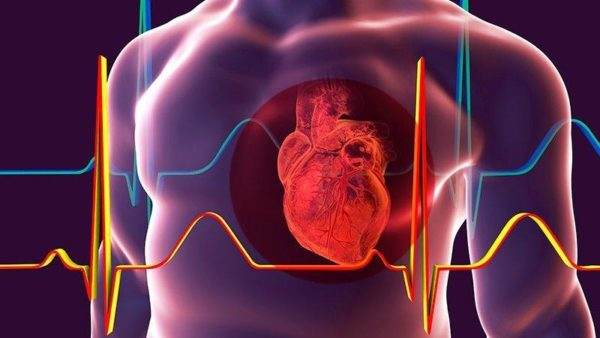When it comes to health, the connection between dental care and heart health is often overlooked. However, recent studies have shown that oral health is intricately linked to cardiovascular health. As a dental patient, understanding how your heart functions, especially when it experiences arrhythmias, can be crucial in maintaining overall well-being. Arrhythmias, or irregular heartbeats, are more common than you might think, and their effects can be far-reaching, even impacting your dental care.
The Different Types of Arrhythmias
There are several types of arrhythmias, each with its unique characteristics:
Atrial Fibrillation (AFib): This is one of the most common types of arrhythmia, where the upper chambers of the heart (atria) beat irregularly, leading to an inefficient blood flow.
Ventricular Tachycardia: This occurs when the lower chambers (ventricles) beat too quickly, potentially leading to a life-threatening situation.
Bradycardia: A slower than normal heart rate, which can cause dizziness, fatigue, and in severe cases, fainting.
Premature Ventricular Contractions (PVCs): These are extra heartbeats that begin in one of the ventricles, disrupting the regular heart rhythm.
What Happens During An Arrhythmia?
Physical Symptoms and Experiences
When your heart goes into arrhythmia, the symptoms can vary widely depending on the type and severity of the arrhythmia. Here are some common experiences:
Palpitations: A feeling that your heart is racing, pounding, or fluttering. This is often the most noticeable symptom of an arrhythmia.
Shortness of Breath: An irregular heartbeat can make it difficult for your heart to pump blood effectively, leading to shortness of breath or difficulty breathing.
SEE ALSO: What Are The Treatments for Atrial Arrhythmia?
Dizziness or Lightheadedness: The brain may receive less blood than it needs, causing you to feel dizzy or lightheaded.
Fatigue: Even without noticeable symptoms like palpitations, an arrhythmia can leave you feeling unusually tired or fatigued.
Chest Pain or Discomfort: In some cases, arrhythmias can cause chest pain, which may feel like pressure, tightness, or discomfort in the chest area.
The Dental Connection: Why Should Dental Patients Care About Arrhythmias?
Oral Health and Cardiovascular Health
As a dental patient, you might wonder why it’s important to understand arrhythmias. The connection lies in the relationship between oral health and heart health. Poor oral hygiene, particularly gum disease (periodontitis), has been linked to an increased risk of cardiovascular diseases, including arrhythmias. Bacteria from the mouth can enter the bloodstream, causing inflammation in the blood vessels and potentially leading to heart problems.
Implications for Dental Treatment
If you have a known arrhythmia, it’s essential to inform your dentist before undergoing any dental procedures. Certain dental treatments, especially those involving local anesthesia or procedures that cause stress, can trigger or exacerbate an arrhythmia. Additionally, some medications used in dental care can interact with your heart medications, so it’s crucial to keep your dentist informed about your cardiovascular health.
Managing Arrhythmias: What Can You Do?
Regular Monitoring and Medical Care
If you’ve been diagnosed with an arrhythmia, regular monitoring is key to managing your condition. This might include:
Electrocardiograms (ECG): A test that records the electrical activity of your heart and can help detect arrhythmias.
Holter Monitors: A portable device that records your heart’s activity over 24-48 hours, providing a more comprehensive view of your heart’s rhythm.
Event Monitors: Similar to a Holter monitor, but worn for longer periods, these devices help capture irregular heartbeats that may not occur daily.
Lifestyle Changes
Certain lifestyle changes can help reduce the risk of arrhythmias or manage existing conditions:
Healthy Diet: Eating a heart-healthy diet low in sodium, saturated fats, and trans fats can improve heart health.
Regular Exercise: Staying active can help maintain a healthy weight, lower blood pressure, and reduce the risk of arrhythmias.
Avoiding Stimulants: Caffeine, nicotine, and certain medications can trigger arrhythmias, so it’s important to limit or avoid them if you have a heart condition.
The Importance of Stress Management
How Stress Affects Your Heart
Stress is a significant factor in the onset and exacerbation of arrhythmias. When you’re stressed, your body releases hormones like adrenaline, which can cause your heart to beat faster and potentially trigger an irregular rhythm. For dental patients, stress can be particularly relevant, as anxiety about dental procedures can increase the risk of an arrhythmia.
Strategies for Reducing Stress
Mindfulness and Relaxation Techniques: Practices like meditation, deep breathing, and yoga can help calm your mind and reduce stress levels.
Regular Physical Activity: Exercise is a great way to reduce stress, as it releases endorphins, the body’s natural stress relievers.
Talking to a Professional: If stress is significantly impacting your life, speaking with a counselor or therapist can provide you with tools to manage it effectively.
When to Seek Medical Attention
Recognizing Serious Symptoms
While some arrhythmias are harmless, others can be life-threatening and require immediate medical attention. You should seek emergency care if you experience:
Severe Chest Pain: Especially if it’s accompanied by shortness of breath, sweating, or nausea.
Fainting or Loss of Consciousness: This can indicate a serious disruption in the heart’s rhythm.
Sudden Onset of Extreme Fatigue or Weakness: Especially if it’s accompanied by other symptoms like shortness of breath or dizziness.
Conclusion
As a dental patient, understanding the connection between your oral health and your heart is essential. Arrhythmias are a serious health concern, but with proper management and lifestyle changes, they can be controlled. By maintaining good oral hygiene, managing stress, and keeping your dentist informed about your heart health, you can reduce the risk of complications and ensure that both your heart and your teeth stay healthy.

